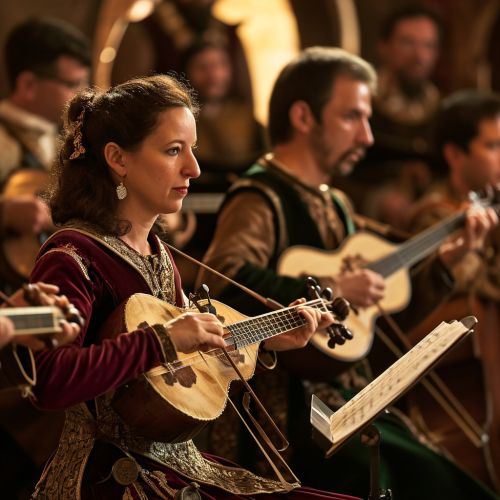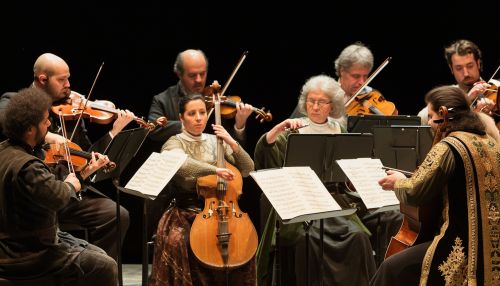Chanson
Origins and History
The term "Chanson" is derived from the French word for song, and it refers to a genre of music that originated in France. The earliest known chansons were the secular songs of the troubadours and trouvères in the Middle Ages, which were often accompanied by instruments and were sung in Old French. These songs typically dealt with themes of chivalry and courtly love.


In the 14th century, the chanson evolved into a more complex form known as the ars nova, which was characterized by intricate polyphony and rhythmic innovation. This period also saw the rise of the chanson de geste, a type of epic poem that was often set to music.
During the Renaissance, the chanson underwent another transformation, with composers such as Josquin des Prez and Claude Le Jeune developing the Parisian chanson, a style that combined the polyphonic complexity of the ars nova with the simplicity and directness of the earlier troubadour songs.
In the 19th and 20th centuries, the chanson became associated with a style of popular song that was typically performed in cabarets and music halls. This style, known as chanson réaliste, often dealt with themes of urban life, love, and social issues. Notable performers of this style include Édith Piaf and Jacques Brel.
Characteristics
Chansons can vary greatly in style and form, but they typically share certain characteristics. They are often written in a verse-chorus structure, with the verses telling a story or expressing an emotion and the chorus providing a memorable, catchy refrain. The lyrics are usually in French, and they often deal with themes of love, life, and social issues.
Musically, chansons are characterized by their emphasis on melody and their use of traditional French musical forms and structures. They often feature a strong, clear vocal line, accompanied by a simple, straightforward instrumental arrangement.
Influence and Legacy
The chanson has had a significant influence on various forms of music, both within France and internationally. It has been a major influence on the development of art song, a genre of classical music that sets poetry to music. The chanson has also influenced the development of popular music genres such as pop, rock, and folk music.
In addition, the chanson has had a significant cultural impact, with many chansons becoming iconic symbols of French culture and identity. Songs such as Édith Piaf's "La Vie en Rose" and Jacques Brel's "Ne Me Quitte Pas" have become international hits, and they continue to be performed and recorded by artists around the world.
